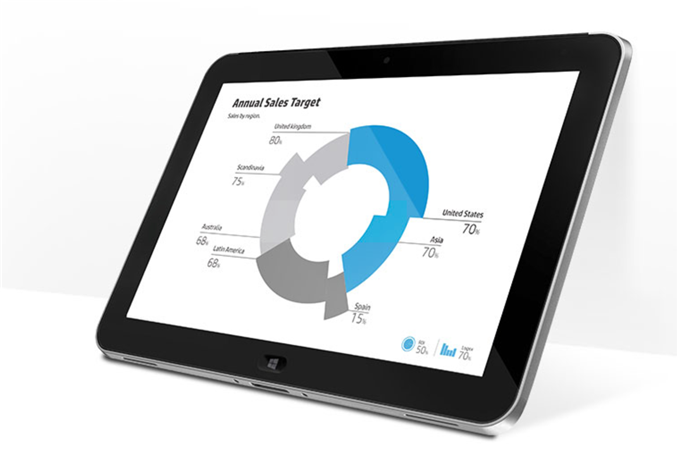Ask AnandTech: Tablets at Work, What are Your Experiences?
by Anand Lal Shimpi on June 12, 2013 3:13 PM EST
The tablet market has grown tremendously over the past few years. What started as a content consumption device for consumers has transformed into a device that has started to pull sales away from traditional notebooks. The obvious next step for tablets is towards the enterprise and business users.
As my usage models tend to be a bit unusual, when tasked with finding out how people use tablets for work my initial thought was to go to you all directly. So, how do you or could you use use tablets for work? What possibilities do you see for tablet use in work going forward? Respond with your thoughts in the comments, a lot of eyes will be watching this discussion and you could definitely help shape design decisions going forward.










148 Comments
View All Comments
r3loaded - Wednesday, June 12, 2013 - link
The only tablet that can possibly be useful to me is an x86 Windows tablet like the Surface Pro, and I'll absolutely need a physical keyboard to go with it. If it can't compile code, it's useless for work to me.TwiSparkle - Wednesday, June 12, 2013 - link
Pretty much. I am a student but the same applies for me. I was super interested in the Surface Pro (and will be more interested in a Haswell Pro 2) because it is super portable and I can run Visual Studio on it.protomech - Thursday, June 13, 2013 - link
Visual Studio on a 10.6" 1080p display sounds like a recipe for eye strain, tbh.chizow - Wednesday, June 12, 2013 - link
Pretty much same here for me, without seamless Active Directory support and Office, tablets are a non-starter for me at work.I'm also waiting for Surface Pro 2, needs are 1) lower price ($600 ideally with typepad) 2) slightly smaller form factor and 3) better battery life.
Make it happen MS!
thesavvymage - Thursday, June 13, 2013 - link
i dont think that price point would be possible with a ulv haswell chip. A surface with an Atom or Kabini, however, is something Id definately buy at 600Spoelie - Thursday, June 13, 2013 - link
You're looking at it from an angle where a tablet would replace your workstation, which at this point is madness of course.But have you considered it as a note taking device on meetings? To do a presentation on or give a demo of a release (assuming web interface or compatible codebase)? Or any other tasks not related to coding?
A5 - Thursday, June 13, 2013 - link
A laptop does all of that better and can still compile code.protomech - Thursday, June 13, 2013 - link
If you're sitting down, yes.A slate device is a better form factor for passing around, for use while standing or moving about or giving a presentation.
It won't compile code as well as a laptop certainly, but if that was the only metric we were interested in then we'd all be using 55W TDP 8 pound laptops or workstations. Slate devices have enough power for a large number of users and their tasks, and that number will proportionally grow over time.
StevoLincolnite - Tuesday, June 18, 2013 - link
For note taking, I use... Yes, you guessed it. Pen and paper. Then scan it into my Notebook or Desktop or Phone later which automagically turns it into text, no battery, smaller, cheaper and lighter weight. :PKrysto - Saturday, June 22, 2013 - link
The screen is still too small on a Surface, which makes it pretty useless for real work. No matter how you look at it, you're going to compromise with the Surface Pro.